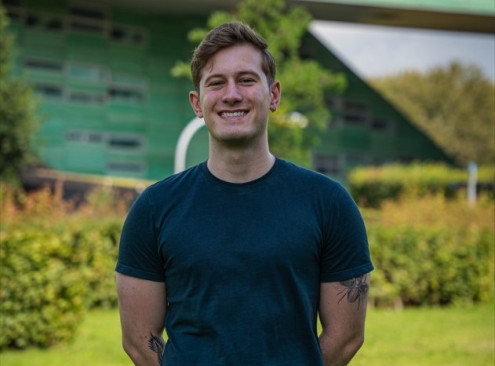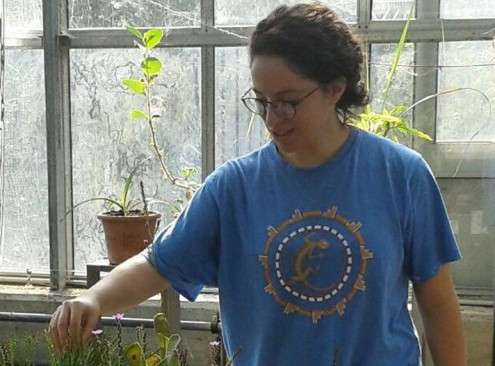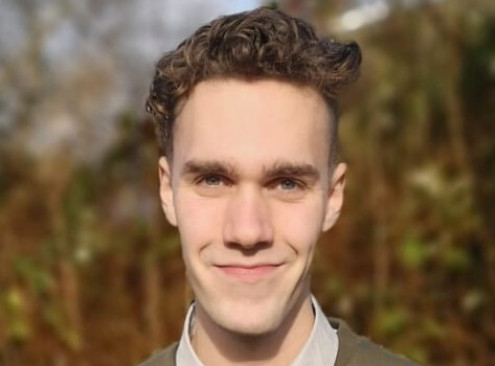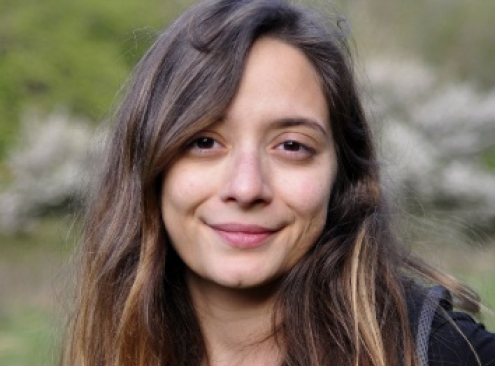© Pint of Science, 2024. All rights reserved.
Ever wondered what dinosaurs can teach us about cancer or what are grounds for divorce in birds? Want to know why some plants are even more carnivorous than yourself? Or are you intrigued by the idea of controlling technology with only the power of your mind?
Science isn't just Nobel prizes, spreadsheets and petri dishes, it's groundbreaking and fascinating research happening right here on your doorstep in Groningen. Join us for a night of talks on the 14th of May 2024, while you drink, socialize and discuss.
Complementary drink included in your €8 ticket.
Science isn't just Nobel prizes, spreadsheets and petri dishes, it's groundbreaking and fascinating research happening right here on your doorstep in Groningen. Join us for a night of talks on the 14th of May 2024, while you drink, socialize and discuss.
Complementary drink included in your €8 ticket.
From Raindrops to Breakups: The Effect of Rainfall on Divorce in a Socially Monogamous Songbird
Agus Bentlage
(Master's student, Groningen Institute for Evolutionary Life Sciences)
Like most humans, many bird species mate with one chosen partner. Yet, some birds realize that their chosen partner is suboptimal and divorce them, hoping to find someone better, an experience common for many humans as well. Birds often divorce due to poor reproductive success. As environmental factors can affect reproductive performance, they can impact divorce. This talk will explore the relationship between rainfall and divorce in Seychelles warblers. Given current climate change, understanding how environmental changes affect partnerships may have important implications for conservation.

© Agus Bentlage
Carnivorous wonders and why they matter
Larissa De Paola
(PhD Student, Groningen Institute for Evolutionary Life Sciences)
Due to their perceivable movement, carnivorous plants have fascinated researchers and collectors since Darwin discovered carnivory in the sundew Drosera rotundifolia. Our journey starts by defining what is, what is not, and what is almost a carnivorous plant, and how diverse and ingenious are the different traps that plants use to capture and digest their prey. We’ll talk about the difference between passive and active traps, and how some carnivorous plants turned vegan! Finally, we’ll have a look to some technologies inspired by these carnivorous wonders.

© Larissa De Paola
Non-invasive Brain Computer Interfaces: Brain chips without the surgery
Ivo de Jong
(PhD Candidate/Lecturer, Bernoulli Institute for Mathematics, Computer Science and Artificial Intelligence)
Neuralink has made news with the first paralyzed person to use a brain-implanted chip to play Mario Kart. This puts a spotlight on technology that was otherwise considered sci-fi: Brain-Computer Interfaces (BCI). This technology allows people to control devices directly with their brain. This is not just cool – it can also have a big impact on the lives of paralyzed people. I research BCIs that don’t require surgical implants, making it easier to “just try” a BCI. I’ll discuss challenges we’ve overcome, and the next steps to take to allow patients to use BCIs without brain surgery.

© Ivo de Jong
What can birds, dinosaurs, elephants (and others) teach us about cancer?
Dr. E. Yağmur Erten
(Assistant Professor, Groningen Institute for Evolutionary Life Sciences)
Cancer is a risk all multicellular organisms face: each cell division comes with a probability of mutations that can eventually cause cancer. Yet some species like elephants achieve long lifespans and large body sizes even though they need more cell divisions. How do these organisms reach their mature sizes without succumbing to cancer? Can cancer risk constrain body size evolution? What happens when large-bodied lineages like dinosaurs shrink in size? In this presentation, I will talk about how studying cancer across the tree of life can help us better understand it.

© Yağmur Erten
Map data © OpenStreetMap contributors.